
New research finds that childhood symptoms of disordered eating are predictive of symptoms in adulthood regardless of race, debunking the myth that eating disorders don't affect Black women.

The most impactful psychological science research published in 2022 reveals that new understandings of human behavior continue to resonate with wide audiences.

Recent research suggests that women’s judgments about other women’s bodies can be biased by an overrepresentation of thinness. Sean Devine explains these findings and elaborates on their implications for policy.
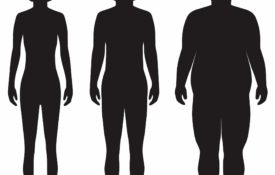
"Society has not come to terms yet with the fact that eating disorders are everywhere, they impact everyone, and the problem is growing," says Cheri Levinson.

A technique known as “distanced self-talk” is an effective strategy for making healthier food choices.
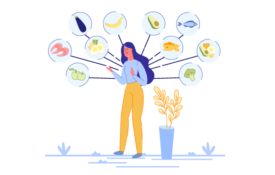
Consumer taxes on sugary beverages are meant to curb consumption, but they are effective only when increased costs are salient at the point of purchase, according to new research published in Psychological Science.

Kelsie Forbush, recognized as an APS Rising Star in 2015, discusses landing her first job post-PhD, launching a lab at the University of Kansas, and the importance of collaborating with clinicians.

Understanding the gut-brain axis can provide a much needed boost in well being.

Popular narratives centering on “free choice” and “personal responsibility” might contribute to high rates of ill health and poor well-being in the United States.

When choosing between indulgent and healthy foods, your pick may depend on what other foods sit nearby on the grocery shelf.

This Seoul National University professor uses computational modeling to identify the behavioral markers of addiction.

How much you eat when you’re not really hungry may depend on how well off your family was when you were a child, according to new research published in Psychological Science, a journal of the

Romantic relationships certainly contribute to emotional as well as physical well-being, but studies indicate that people in distressed marriages are at risk for a slew of health problems, including cardiovascular disease, metabolic syndrome, and even
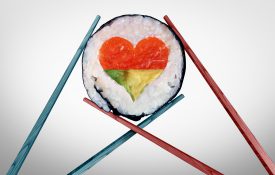
Telecommuting may be good for your diet. In a new comprehensive review on the science of telecommuting, psychological scientists Tammy Allen, Timothy Golden, and Kristen Shockley describe both the benefits and drawbacks of working from

Depression treatments include both psychotherapy and pharmacotherapy, but a burgeoning area of research points to another potent therapy: nutrition
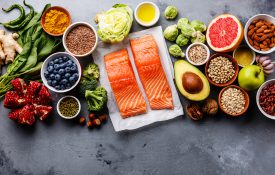
Considerable research explores the relationship between negative emotion and disordered eating behaviors, such as binge eating and purging. But a new study suggests that positive emotions may also play a role in rewarding and maintaining

Evocative labels such as “twisted citrus glazed carrots” and “ultimate chargrilled asparagus” can get people to eat more vegetables than they otherwise would—as long as the food is prepared flavorfully, a nationwide study shows.

Your memory for that last bite of a steak or chocolate cake may be more influential than memory for the first bite in determining when you want to eat it again, according to research published

You’ve been trying to lose some weight, but you also get hungry for a snack in the evening. So imagine you go to the kitchen to check out your options, and you find apples and

As you glance over a menu or peruse the shelves in a supermarket, you may be thinking about how each food will taste and whether it’s nutritious, or you may be trying to decide what
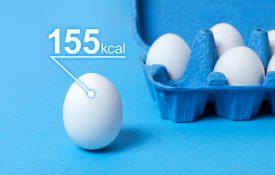
People are more likely to choose healthy options at the grocery store if they use the risk of losing their monthly healthy food discount as a motivational tool.
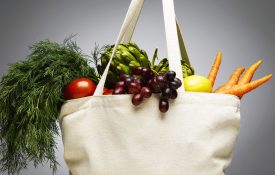
A few days of high-fat, high-sugar eating — say, Thanksgiving followed by a weeks’ worth of leftovers — may impair a specific cognitive function: spatial recognition.

When faced with stress, some people seem to lose their appetite while others reach for the nearest sweet, salty, or fatty snack. Conventional wisdom tells us that stress eaters are the ones who need to

Research suggests that in addition to making us eat more, distractions during meals may also make our food taste different.

It stands to reason that you’d be willing to pay more for a nice slice of pumpkin or apple pie before Thanksgiving dinner, when you’re hungry and salivating, than afterwards, when you’re full to bursting.

People who indicated that diet was the primary cause of obesity actually had lower BMIs than those who implicated lack of exercise.

Bad news about the economy could cause you to pack on the pounds, according to a new study published in Psychological Science, a journal of the Association for Psychological Science. The study shows that when

Internal states, even feeling full, can be learned as cues to seek out food, research shows.

Children show stronger food craving than adolescents and adults, but they are also able to use a cognitive strategy that reduces craving, according to new research published in Psychological Science, a journal of the Association

Late on Halloween night, with candy strewn across the dining room table, millions of children across the United States will enjoy the hard-earned fruits of their trick-or-treating labors. After picking through the spoils and immediately

On the Monday following a big football game, fans of the losing team seem to load up on saturated fats and sugars, whereas supporters of the winning team opt for healthier foods.
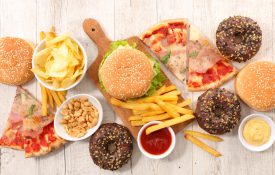
Every January, many people pledge to make healthier food choices a priority for the upcoming year—swapping out that slice of chocolate cake for a bag of carrot sticks. But, keeping that healthy eating resolution isn’t
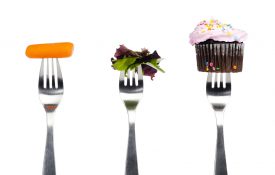
The National Academies of Science, Engineering, and Medicine released a consensus study report in August detailing strategies for reducing food waste at the consumer level.

Exploring the realities behind the effects of sugar illustrate many psychological concepts, including hunger, evolution, and psychopathology.

Warning labels that include photos linking sugary drink consumption with obesity, type 2 diabetes, and tooth decay may reduce purchases of the drinks, a field study shows.

With childhood obesity rates escalating, psychological scientists are using self-report measures, brain scans, and other methods to reveal how ads for unhealthy foods affect children's minds -- and their eating behaviors.
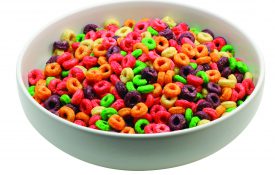
Activity in areas of the brain related to reward and self-control may offer neural markers that predict whether people are likely to resist or give in to temptations, like food.
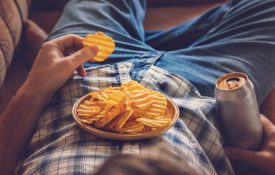
Birthday celebrations often follow a formula, including off-key singing, making a birthday wish while blowing out candles, and the ceremonial cutting of the birthday cake. New research suggests that this ritual not only makes the

Research highlights from APS journals.

A sample of research exploring mechanisms underlying attention-bias modification, effects of recall and memory disjointedness on trauma symptoms, and eating disorder pathology among those with food insecurity.

As you prepare a meal to share with family and friends, learn what not to feed your guests and why comfort food make us feel so much better when we’re down.

Sharing an experience, such as tasting chocolate, with another person — even if we do it in silence, with someone we met just moments ago — seems to intensify that experience.

Like to save the best for last? Here’s good news: If it’s the last, you’ll like it the best. That is the finding of a new study published in Psychological Science, a journal of the
